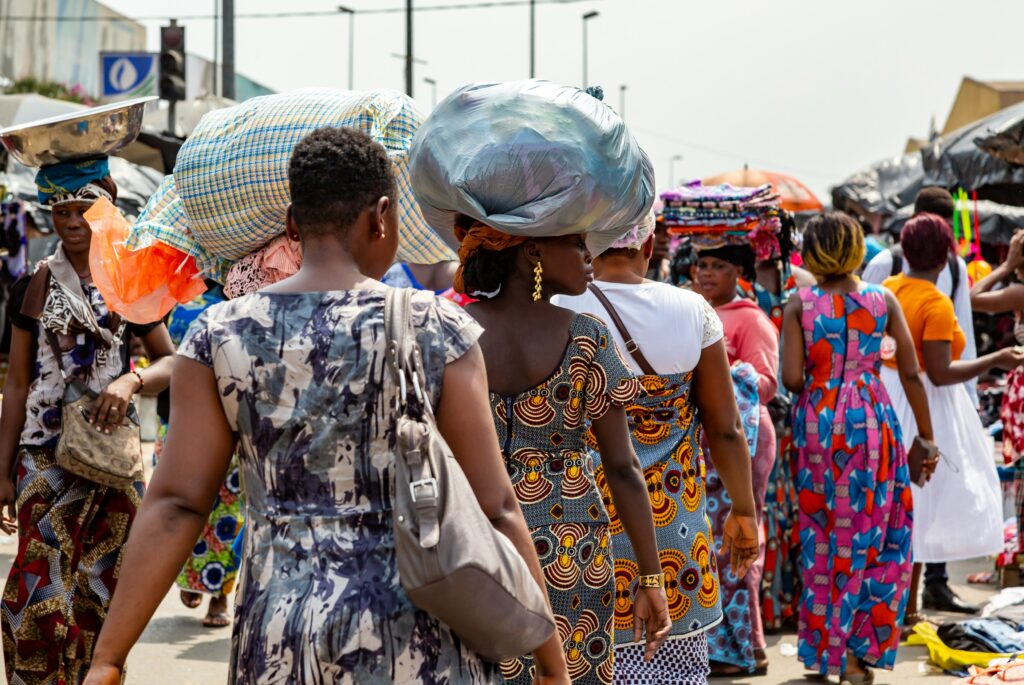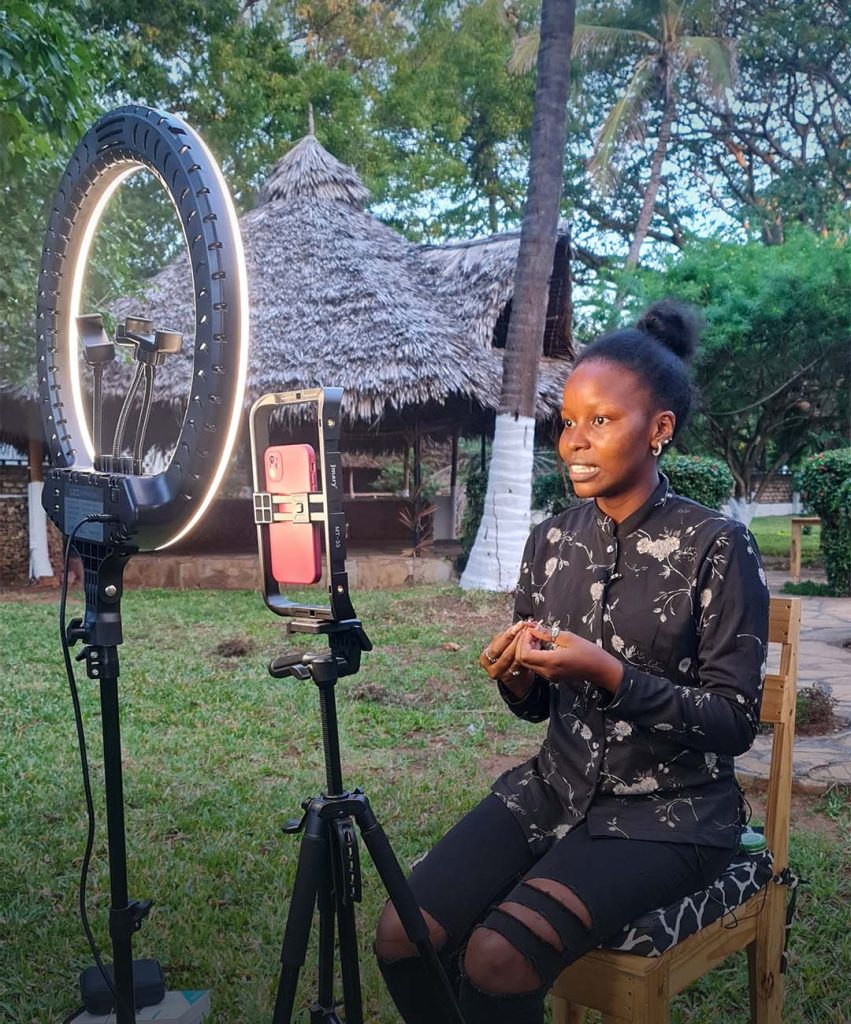In today’s digital world, data has become one of the most valuable and powerful resources. Whether we’re browsing the internet, using social media, or even shopping online, we leave behind digital footprints that are collected, analysed and used in many ways, often without our full understanding. To a great extent, the processing of our data makes our lives easier, but at the same time, it exposes us to risks of misuse. As such, there has been pressure all over the world for robust data protection laws. In East Africa, we have been collaborating with The Open Institute on a data privacy and protection campaign called #FichaUchi, which seeks to empower youths with the information they need to take control of their personal information.
Data Is Valuable!
Before we delve into the campaign, let us talk about the why data is so valuable innrecent years. Human-generated data is the backbone of the digital tools and technologies that we enjoy today. Our data is collected when we browse websites, use social media platforms, watch videos on youtube, shop online or grant mobile phone applications access to our location, contact lists or camera. Every time we log onto fitness trackers or maps, we generate data that is collected and stored by companies. This data is used for various purposes: targeted advertising, business intelligence, and more recently, training AI models like GPTs, self-drive cars and robots. For example, platforms like Google, Facebook and TikTok use our data to improve algorithms that enhance their services, from search predictions to personalised content recommendations – if you like watching prank videos, the next video on your playlist will be a prank video.
However, while these applications of data can enhance our experience, there is often little transparency about how the data is stored, how it is used or even who else has access to it. In many cases, it’s not just companies; governments and other third parties may also access this data (as we saw during the 2020 pandemic), raising concerns about privacy and protection.
The Global Data Governance Gap
Everyone agrees that people’s data belongs to them and it cannot be used without their knowledge and consent. However, citizens and governments around the world are still figuring out comprehensive Data Governance protocols. Countries in the European Union are ahead, with the General Data Protection Regulation (GDPR) setting stringent standards for data collection, processing, and usage. GDPR is designed to empower users with control over their personal data, ensuring they have clear rights and legal recourse if their data is misused.
African nations, however, have lagged in implementing robust data governance frameworks. Many either lack comprehensive data protection laws or operate under outdated regulations that fail to address the complexities of today’s digital environment. Those with data protection laws, like Kenya, South Africa, and Nigeria, are faced with challenges such as low public awareness of the laws and lack of effective enforcement mechanisms.
In Kenya, data breaches and misuse are rampant across various sectors. Government institutions, private corporations, and even individuals frequently exploit personal data without user consent or awareness. For instance, the Kenyan government has faced criticism for its collection of citizen data through the Huduma Namba (now Maisha Number) digital ID initiative, which collected biometric and personal data for public service access. Concerns arose about the real need for a digital ID and the real use and security of the data collected. The private sector also has its share of controversies, particularly with the misuse of consumer data for aggressive marketing or unauthorized sharing with third-party companies. Telecommunications companies in Kenya have been criticised for selling customer data to advertisers, while financial institutions have mishandled personal information in ways that leave customers vulnerable to fraud and identity theft. On a more personal level, individual misuse such as SIM swapping and identity theft have become prevalent, affecting citizens who are unaware of the dangers of sharing personal information online.
Enter #FichaUchi Campaign
Recognizing the significant gaps in data literacy, the Open Institute launched its Data Governance program to support the implementation of Kenya’s Data Protection Act and ensure citizens benefit from technology without compromising their rights. Initially focused on Kenya, the program expanded across Africa through initiatives like #RestoreDataRights and #FichaUchi. We partnered to develop a campaign aimed at improving data literacy among young people in Kenya, Tanzania, and Uganda. The #FichaUchi campaign, meaning “hide your nakedness” in Swahili, calls on citizens to guard their personal information. It educates youth on the types of data they share, how it can be exposed, practical protection measures, and their rights under Kenya’s Data Protection Act.
FichaUchi is the first campaign in Kenya to simplify the complex legal language of the Data Protection Act into relatable, easy-to-understand content, including comedic skits and memes. It empowers young people to not only understand their data rights but to actively safeguard their personal information.
See linked #FichaUchi one, two and three.
The Campaign’s Activities and Achievements
Since its inception, #FichaUchi has reached over 195 million social media accounts across Kenya, Uganda, and Tanzania. Here are some of the innovative activities that have driven the campaign’s success:
- Street Interviews and Focus Groups: We conducted on-the-ground interviews and discussions with citizens across East Africa to understand local understanding and attitudes toward data privacy. These interactions revealed that many people in the region have a limited knowledge of what “data” means beyond mobile internet bundles, making targeted education even more critical. Additionally, very few understand how they expose personal information everyday.
- Community Sensitisation and Training: We partnered with community-based organisations to hold workshops and trainings in rural areas, allowing the campaign to reach those who are offline and vulnerable to data misuse. So far, we have trained more than 500 people. As part of efforts to increase our appeal to rural communities, we partnered with celebrated community content creators in Kilifi to develop skits that were used in the community engagements. These were also posted on Facebook and Tiktok, contributing to the reach mentioned above.
- Memes and Paid Ads: Leveraging digital culture, the campaign has utilised memes and paid advertising to push the message. We have translated complex legal jargon into simple, humorous content that resonates with the youth. This approach has been instrumental in breaking down the formal language of the Data Protection Act.
- Radio Collaborations and Content Creators: By partnering with community radios and popular Kenyan Content Creators, the campaign has reached a diverse demographic, ensuring that data privacy messages are delivered through trusted voices across multiple platforms.
While #FichaUchi has made remarkable strides in promoting data literacy, there is still much work to be done. Just like marketing campaigns, there is need to sustain the conversations. We remain committed to our collaboration with the Open Institute and to expanding the campaign’s reach and deepening public understanding of data protection, particularly as the digital landscape in East Africa continues to evolve. As more young people come online, the risks of data exploitation increase, making it essential for initiatives like #FichaUchi to continue advocating for stronger data governance and user education.
We further commit ourselves to fostering informed citizenship among young people by localizing complex information in ways they can easily understand and relate to. When young people grasp the intricacies of issues, laws, and processes, they are not only more capable of engaging with them but also empowered to participate in meaningful decision-making, advocate for their rights, and contribute to the development of inclusive and sustainable communities. By equipping the youth with knowledge, we nurture a generation that is prepared to lead and drive positive change in their societies.


